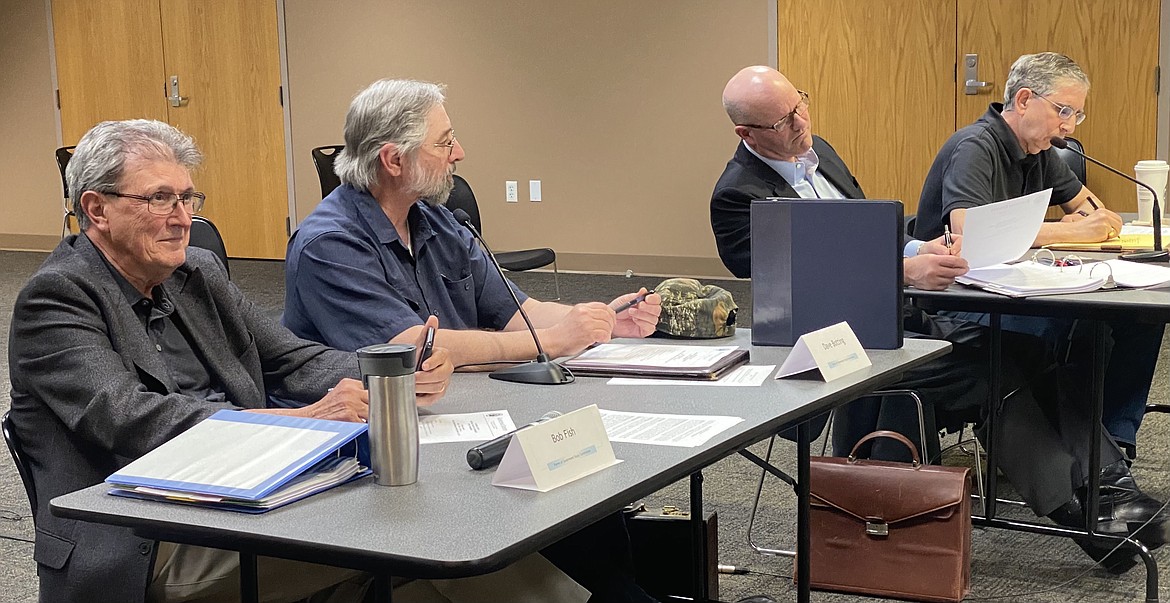The first of many
MADISON HARDY | Hagadone News Network | UPDATED 4 years, 7 months AGO
Monday night marked the first of many meetings conducted by the optional forms of government study commission that will assess the efficacy of Kootenai County's organizational structure.
Made up of nine members and three alternates, the commission will collect data to evaluate if current county operations are most beneficial to residents — or if it is time for a change. Based on their findings, study members will compare the present form to a series of alternative governmental structures permitted under Idaho Code 31-5001.
Over the next year, the group plans to organize meetings with elected officials, county stakeholders, roadshows, and public forums to develop a recommendation.
To facilitate an effective and efficient investigative process, the group agreed to prepare a list of speakers and discussion items they believe would benefit the study to explore at next week's meeting.
Though the group is still fresh with little planned for upcoming agendas, they recognized the high degree of community interest in their discussions. Consequently, members felt it would be essential to allow for public comment in commission meetings.
"The credibility of this commission is based on whatever trust we build over time, and the way you build trust is to provide opportunities for the public to speak and listen to them," David Levine, a Commissioner Chris Fillios nominee, said.
During the Monday meeting, commission members nominated three interim officers — Dave Botting as chair, Cleary as vice-chair, and Levine as secretary.
Tamara Bateson, nominated to the study by Commissioner Leslie Duncan, initially proposed a rotating chair and co-chair to promote transparency and equality.
"This is a very, highly contested situation here," Bateson said. "Having a rotating chair that is monthly, bimonthly, shows that everybody is equally represented — instead of two versus everyone else here."
Several committee members did not support the concept of rotational leadership for its potential impact on organization continuity. Levine touched on his experiences as a board chairman for the county's planning and zoning commission, explaining that the position is a title and does not necessarily dictate increased standing.
"I do agree that you want to make sure that this is a transparent process," Levine said. "I'm not sure a rotating chair is a way to get that. I think that the way to get transparency is to be clear about the process we use, about how the public will be able to interface with us in workshops, comments, and all that."
Dave Botting, a Fillios nominee, assured that chairman is a title and not intended to appear as a means of control.
"If you're looking for the power, the chair does not hold it," Botting said. "Every member of this commission will have a right to speak. It's not the chair who actually is going to make that determination."
Interim officers will maintain their positions until the commission finalizes their bylaws.
During that period, the group will meet weekly on Wednesday nights in the county administration building from 5:30 to 7 p.m. After completing the bylaws, the commission plans to reassess scheduling needs.
ARTICLES BY MADISON HARDY

CDA Tribe challenges redistricting
Says 'communities of interest' not served in new map
Coeur d'Alene and Shoshone-Bannock tribal leaders file suit against legislative boundaries

CDA Tribe challenges redistricting
Says 'communities of interest' not served in new map
Coeur d'Alene and Shoshone-Bannock tribal leaders file suit against legislative boundaries

CDA Tribe challenges redistricting
Says 'communities of interest' not served in new map
Coeur d'Alene and Shoshone-Bannock tribal leaders file suit against legislative boundaries

